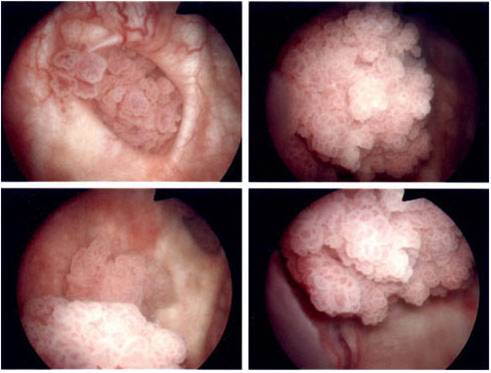
As men age they often experience prostate problems, like gettingup several times at night to go to the bathroom. Having to get upat night is a burden that can disturb a restful sleep, for both youand your partner. benign prostatic hypertrophy (BPH) is thenoncancerous enlargement of the prostate gland and is an extremelycommon condition in older men, effecting almost 50 percent by age60. The symptoms of BPH are frequent urination, dribbling,incomplete emptying of the bladder, and a weak stream of urine.
The causes of BPH are not well understood, but aging andtestosterone are believed to be the primary influences on itsdevelopment. Animal studies suggest that as males age theirhormonal balance between testosterone and estrogen (produced insmall amounts) becomes altered due to the decline in production oftestosterone. There are plenty of treatments – both medical andsurgical – but it would be ideal if the condition could beprevented in the first place through diet.
Two of the largest research studies (over 4700 men) looking atthe effects of diet on BPH were recently published in the Journalof Urology and in the American Journal of Epidemiology. to sum up,they found that taking dietary supplements (specificallyantioxidants) has less impact on a man’s risk of developing BPHthan does his overall eating pattern. The risk of developing BPHwas lower among men who followed diets high in protein andvegetables and low in fat and red meat and who regularly consumedalcohol in moderation. They recommend following these four tips tolower your risk for BPH:
* Get high levels of physical activity and reduce “bellyfat”
* Follow a low-fat diet
* Consume five or more servings of vegetables a day
* Consume no more than two glasses of alcohol a day
Translated – a prostate-healthy way to eat lunch may be tochoose salads without fatty mayonnaise-based dressings, fresh fruitand low-fat yogurt, or a wrap sandwich filled with hummus andvegetables. for dinner, opt for fish, chicken, soy or bean dishes,keeping the protein portion of the meal to no more than one-quarterof the plate, keeping starch to one- quarter and filling the restwith vegetables.
Gentlemen take note: a healthy prostate is yet another reason toeat your vegetables, keep fat intake low, exercise and enjoy anoccasional drink. Warning: prostate disorders can only be diagnosedby a physician. if you are experiencing symptoms associated withBPH you should see your physician immediately for properdiagnoses.
As men age they often experience prostate problems, like gettingup several times at night to go to the bathroom. Having to get upat night is a burden that can disturb a restful sleep, for both youand your partner. benign prostatic hypertrophy (BPH) is thenoncancerous enlargement of the prostate gland and is an extremelycommon condition in older men, effecting almost 50 percent by age60. The symptoms of BPH are frequent urination, dribbling,incomplete emptying of the bladder, and a weak stream of urine.
The causes of BPH are not well understood, but aging andtestosterone are believed to be the
primary influences on its development. Animal studies suggestthat as males age their hormonal balance between testosterone andestrogen (produced in small amounts) becomes altered due to thedecline in production of testosterone. There are plenty oftreatments – both medical and surgical – but it would be ideal ifthe condition could be prevented in the first place throughdiet.
Two of the largest research studies (over 4700 men) looking atthe effects of diet on BPH were recently published in the Journalof Urology and in the American Journal of Epidemiology. to sum up,they found that taking dietary supplements (specificallyantioxidants) has less impact on a man’s risk of developing BPHthan does his overall eating pattern. The risk of developing BPHwas lower among men who followed diets high in protein andvegetables and low in fat and red meat and who regularly consumedalcohol in moderation. They recommend following these four tips tolower your risk for BPH:
* Get high levels of physical activity and reduce “bellyfat”
* Follow a low-fat diet
* Consume five or more servings of vegetables a day
* Consume no more than two glasses of alcohol a day
Translated – a prostate-healthy way to eat lunch may be tochoose salads without fatty mayonnaise-based dressings, fresh fruitand low-fat yogurt, or a wrap sandwich filled with hummus andvegetables. for dinner, opt for fish, chicken, soy or bean dishes,keeping the protein portion of the meal to no more than one-quarterof the plate, keeping starch to one- quarter and filling the restwith vegetables.
Gentlemen take note: a healthy prostate is yet another reason toeat your vegetables, keep fat intake low, exercise and enjoy anoccasional drink. Warning: prostate disorders can only be diagnosedby a physician. if you are experiencing symptoms associated withBPH you should see your physician immediately for properdiagnoses.
More about Fat
- ARTICLE: The skinny on weight loss: Normal weight obesity
- ARTICLE: Food hurts and helps
- ARTICLE: The skinny on weight loss: part IV
- ARTICLE: The skinny on weight loss: part III